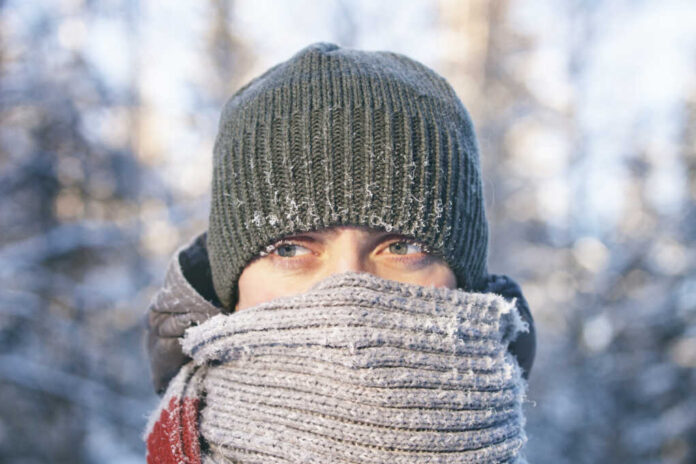
Freezing cold temperatures can fundamentally alter the way our body functions, invoking a series of physiological responses that can range from beneficial to life-threatening.
Understanding these responses is crucial not only for survival in extreme conditions but also for appreciating how our body adapts to environmental stressors.
The Initial Shock: Vasoconstriction and Shivering
When the body first encounters cold temperatures, it triggers an immediate defensive response. Blood vessels in the skin constrict, a process known as vasoconstriction. This mechanism reduces blood flow to the skin, minimizing heat loss from the body’s core.
It’s a survival strategy, prioritizing vital organs over extremities. However, this shift can lead to complications such as frostbite in the fingers and toes, as these areas receive less warm blood.
Simultaneously, the body begins to shiver. Shivering is an involuntary muscle contraction designed to generate heat. While effective in the short term, shivering can be a double-edged sword. It increases the body’s energy expenditure, rapidly depleting energy stores.
In a survival scenario, this can hasten the onset of exhaustion and hypothermia.
Metabolic Adjustments and Hormonal Responses
The body’s metabolic rate increases in response to cold. This is an attempt to generate more heat internally. The thyroid gland plays a pivotal role here, releasing hormones that elevate metabolism. This increased metabolic rate is not sustainable indefinitely and can lead to increased fatigue if the body is continually exposed to cold without adequate energy intake.
Cold exposure also prompts the release of certain hormones, like cortisol, which is associated with stress. Prolonged exposure to cold can lead to chronic stress, impacting overall health and immune function.
Immune System Modulation
Interestingly, the immune system’s response to cold is nuanced. Short-term exposure to cold can actually stimulate the immune system. This is why some advocate for cold showers or ice baths as a way to boost immunity.
However, prolonged exposure, like any extreme or prolonged stress, weakens the body’s defense mechanisms, making you more susceptible to infections.
Cardiovascular Risks and Benefits
The cardiovascular system is particularly sensitive to cold. The initial vasoconstriction increases blood pressure, which can strain the heart. This is why cold weather is often associated with a higher risk of heart attacks.
However, regular, controlled exposure to moderate cold can acclimatize the body, potentially leading to improved cardiovascular health over time.
Psychological and Cognitive Effects
Cold environments can affect mood and cognitive function. The discomfort of cold can lead to irritability and a decrease in cognitive performance.
Conversely, overcoming the challenge of minor cold exposure can lead to improved mental resilience. This is often seen in individuals who regularly engage in cold-weather sports or outdoor activities.
Long-term Adaptation and Acclimatization
Over time, the body can, to some extent, adapt to cold environments. Regular exposure to cold can enhance the body’s ability to conserve heat and maintain a stable core temperature.
This is a process known as acclimatization and is evident in populations living in extremely cold climates.
Navigating the Cold: Practical Implications
Understanding how our bodies respond to cold is crucial for anyone who regularly faces low temperatures, whether for work, recreation, or simply seasonal changes.
Dressing appropriately, staying hydrated, and understanding the signs of frostbite and hypothermia are essential for safely navigating cold environments.
The Delicate Balance: Cold Exposure and Health
Balancing the potential benefits and risks of cold exposure is key. While moderate, controlled exposure to cold can have health benefits, it’s important to avoid extreme conditions that can lead to severe health risks.
Listening to your body and understanding its responses to cold is the best strategy for leveraging the benefits while minimizing the risks.
The impact of freezing cold temperatures on the body is a complex interplay of physiological responses and adaptations. It serves as a reminder of the resilience and adaptability of the human body, as well as its vulnerabilities. By understanding and respecting these responses, we can better navigate and appreciate the challenges and benefits of cold environments.






















